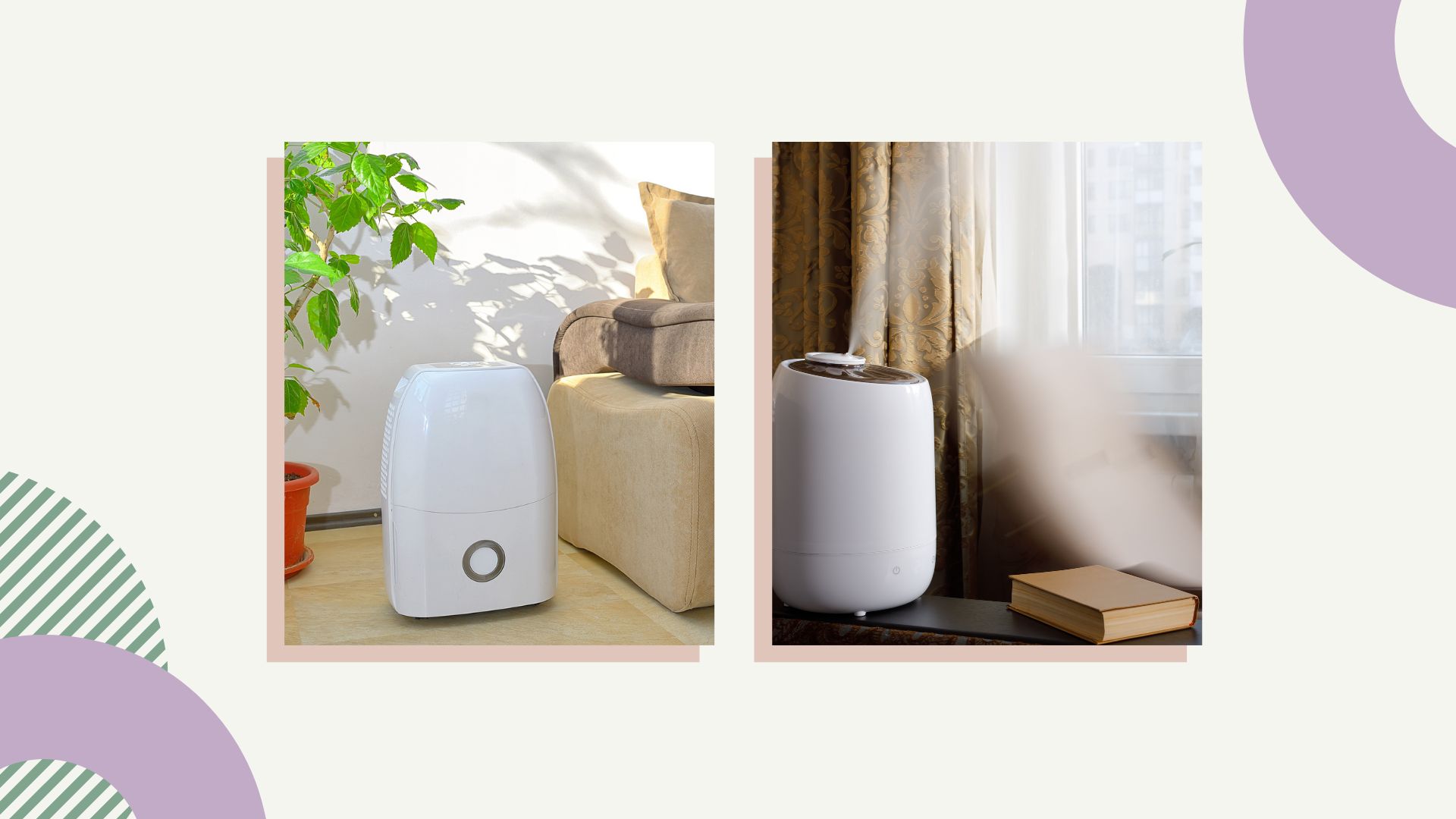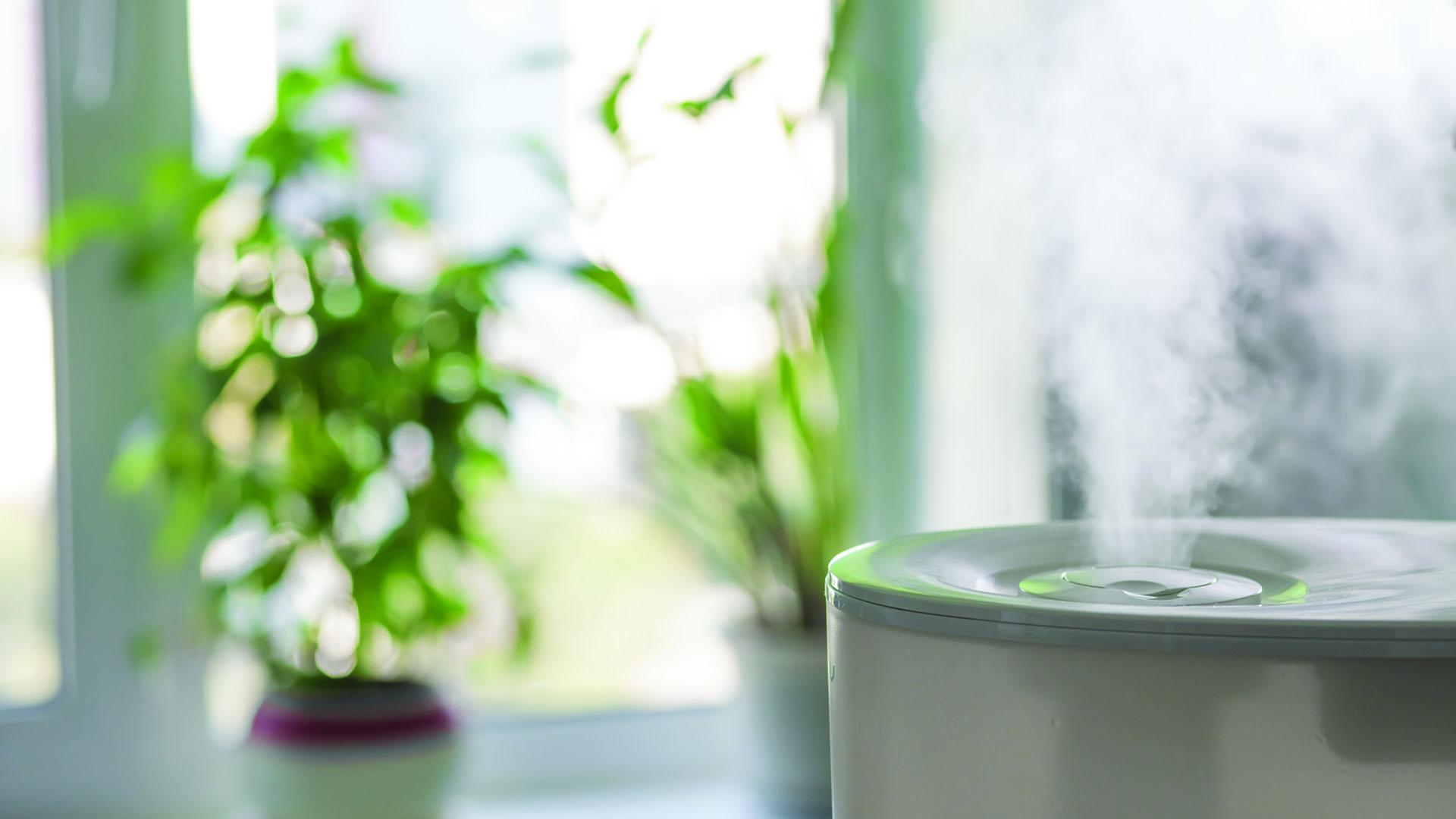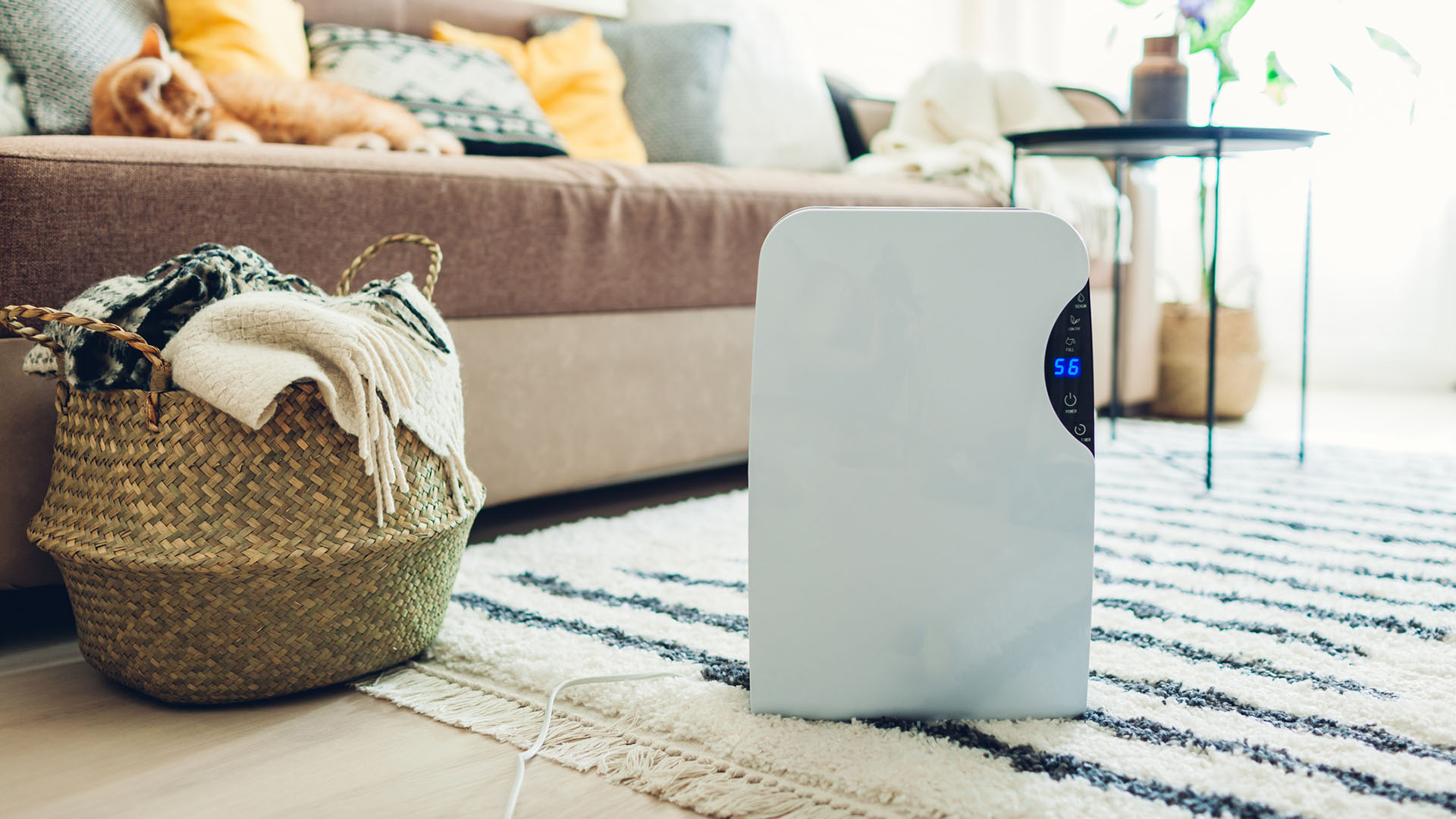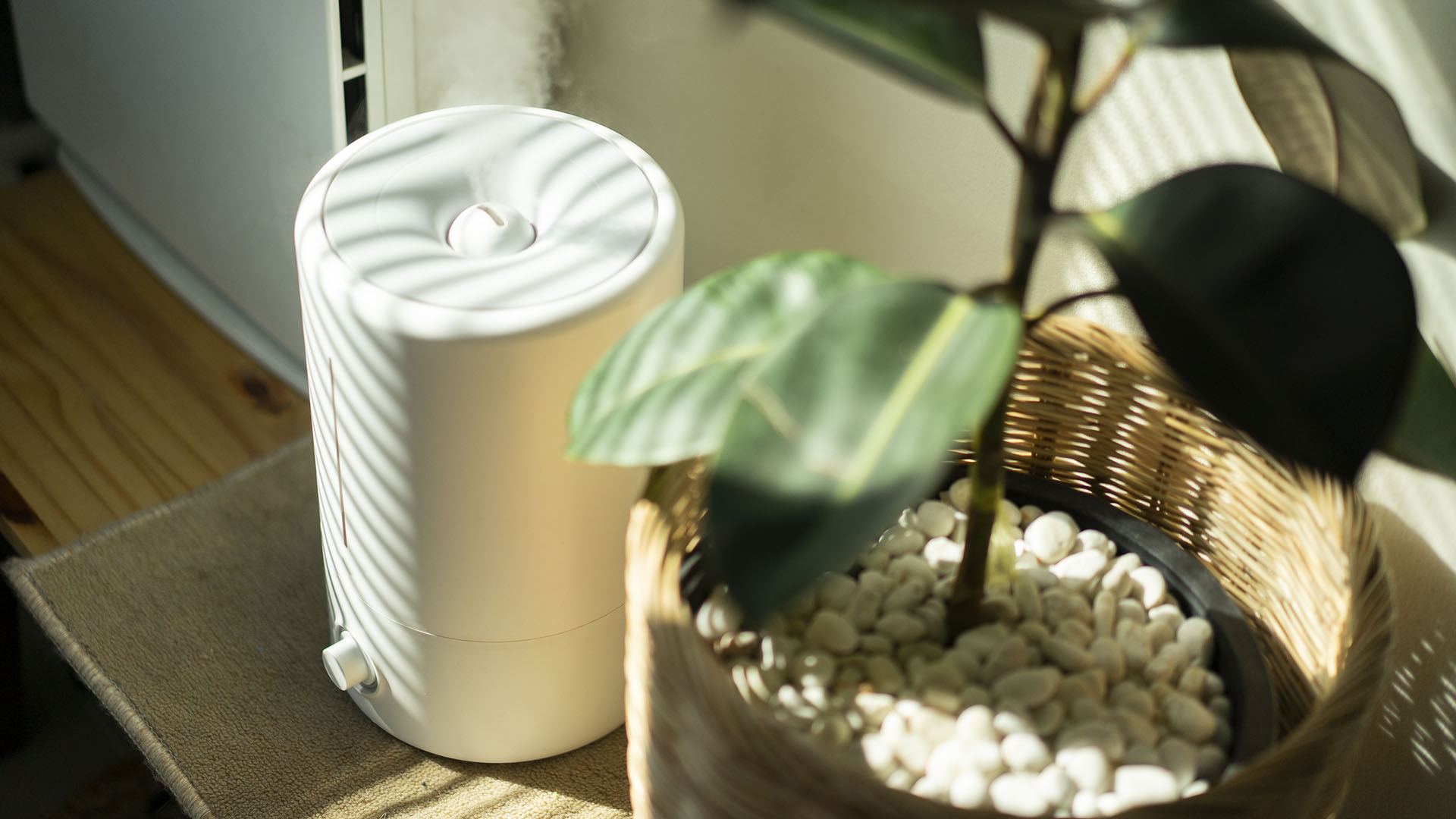Dehumidifier vs humidifier: what is the difference and which one do you need?
Is your home at the right moisture level? We look at dehumidifiers vs humidifiers to help you choose the device that is right for you


Why might you want a dehumidifier vs a humidifier? There are plenty of reasons to consider both, as we'll outline below. But most of all it comes down to moisture content in your home.
Getting the right level in your home is important, as having too much or too little moisture in the air could cause problems with mold or dampness or contribute to health issues such as asthma.
Luckily, the moisture content is something you can control, up to a point at least, and investing in one of the best dehumidifiers or humidifiers could make a big difference to your home and quality of life.
But which do you need? Here, we take a look at both dehumidifiers and humidifiers and speak to property and mold experts on the pros, cons, and use cases of each.
Dehumidifier vs humidifier: what's the difference?

Both humidifiers and dehumidifiers are machines that deal with the amount of moisture in the air but how dehumidifiers work and how humidifiers work is notably different – as when comparing an air purifier vs a dehumidifier.
The main difference between them is that "a humidifier helps add moisture to the air and increases indoor humidity levels, while a dehumidifier removes moisture from the air and decreases indoor humidity levels," says mold and air quality expert Michael Rubino, founder of HomeCleanse and author of The Mold Medic "The two terms are not interchangeable," he adds.
When should you use a dehumidifier or a humidifier?
The ideal humidity in a home should be between 35 and 50 percent, explains Michael, who says that mold can grow at a humidity of 60 percent. When it comes to using a dehumidifier vs a humidifier, either machine can help ensure that the humidity in your home remains at the right level.
Sign up to our free daily email for the latest royal and entertainment news, interesting opinion, expert advice on styling and beauty trends, and no-nonsense guides to the health and wellness questions you want answered.
"A dehumidifier can be used when the moisture level in the air is too high, and a humidifier can be used when the indoor humidity is too low," says Michael.
Dehumidifiers are most likely to be used in the spring or summer, "when it becomes too humid", says CEO and founder of Decor Home Ideas, Ivo Iv. They can make the air feel less clammy, and there are health benefits too – dehumidifiers can help those affected by dry skin or breathing issues and help control allergies.
They’re not just for spring and summer, though, "A dehumidifier can be used throughout the year to dry or prevent damp and mold in the home," says David Phillips from Property Rescue.
There are some rooms in particular that may benefit from a dehumidifier, including bathrooms or kitchens that don’t have an extractor fan. "Use a dehumidifier if there is insufficient ventilation to allow steam and general moisture to escape," says property expert Jonathan Rolande.
"They are also useful after decorating to aid the drying process," adds Jonathan. If you're drying laundry in the home, you may also find a dehumidifier speeds things up.
On the other hand, humidifiers are more likely to be used in winter, "to combat the dryness that cold weather brings", says Ivo. Humidifiers can also be used to add some moisture into the air when a home feels and smells stale and dry – for example if you’ve just moved into a home that hasn’t been aired out for several months.
In terms of health problems, humidifiers can be used to help those affected by dry skin or breathing issues, says Jonathan. "They can also stave off cold and flu germs and be good for our house plants," adds David.
Pros and cons of dehumidifiers

According to Ivo, dehumidifiers have many benefits:
- Dehumidifiers allow you to control the level of moisture in the air, which enhances thermal comfort and makes the air easier to breathe
- By reducing moisture in the air, they also lower the risk of respiratory issues, allergens, dust mites and mold growth
- Dehumidifiers can alleviate symptoms associated with asthma, bronchitis and COPD
- They can prevent musty odors, condensation and moisture damage to furniture
- They can protect papers, books, paintings and other items from moisture damage
- A dehumidifier can speed up the drying of laundry
- A dehumidifier is also a great investment if your home is susceptible to pests such as ants, termites and beetles, which can damage the wood in your home. These critters are attracted by moisture and so using a dehumidifier can help to keep them out of your home, says David
- A dehumidifier is useful to speed up drying time following replastering/painting
Although there are some drawbacks:
- Dehumidifiers can be noisy
- They consume electricity continuously while on
- They don’t work with windows or doors open, which may be a problem in the warmer months
- The initial cost can be expensive
- They can be bulky and heavy
Pros and cons of humidifiers

Apart from adding moisture to the air, there are various benefits of using a humidifier, as Ivo outlines:
- They can improve overall health by reducing the growth of cold and flu viruses that thrive in dry air, especially in winter
- Humidifiers can prevent dry noses, bloody noses, and other discomforts caused by dry air
- They can prevent static electricity, which can damage electronic devices
- Houseplants often thrive better in a humid environment
- Furniture and wall paint will last longer in a humid environment
- With a humidifier, you can save energy and money by making individuals feel warmer without putting the heating on
But make sure you're aware of the potential drawbacks:
- Bacteria and fungi can grow in air humidifiers, especially if they’re not properly cleaned and maintained. This will result in particles being added to the air along with moisture. In a worst-case scenario, these nasties can lead to Legionnaires disease
- Humidifiers require regular cleaning, more often than cleaning a dehumidifier
- Excess moisture can lead to mold growth and other problems
- Tap or bottled water in air humidifiers can lead to the production of white dust, which can be harmful to health. Using distilled water can prevent this issue
- “Failure to keep a close eye on the indoor humidity level can also add too much moisture into the air, tipping the balance into another unhealthy scenario,” says Michael. “A humidistat will help avoid this issue.”
Is a dehumidifier or a humidifier best for mold?
Who wins in the dehumidifier vs humidifier battle when it comes to mold? Dehumidifiers definitely come out on top for preventing the occurrence of mold as they reduce moisture in the air.
However, if you have an existing issue with mold it's worth noting: "If you have a damp problem, be aware that purchasing a dehumidifier will not actually remove existing mold and damp from the home," warns David, though it can alleviate some of the symptoms.
Jonathan agrees: "If damp is suspected always try to find out the cause – it usually won’t get better on its own, even with a dehumidifier." In this instance, you will need likely need to seek professional damp treatment to dry out the walls.
Which is cheaper to use, a dehumidifier or a humidifier?
The cost of using a dehumidifier or humidifier will depend on how big the model is, its energy efficiency, and the environment it’s in, as well as the cost of electricity in your area.
"Normally, operating a dehumidifier is more expensive than operating a humidifier because dehumidifiers need to continually eliminate moisture from the air, while humidifiers only add moisture when the air is dry," says Ivo. "Additionally, dehumidifiers are often larger and require more energy to function, which can further increase the cost."
But costs shouldn't just be thought about in terms of money spent. "The benefits of using a dehumidifier or humidifier can potentially outweigh the cost of running it, such as by preventing furniture damage or reducing energy bills from running the air conditioning or heating," continues Ivo.
David thinks that a dehumidifier is often cheaper to use as it can reduce heating bills and keep a house warm in winter by "removing the chill from the air in your home".
Rosie is deputy editor on woman&home's sister site, Creative Bloq, which covers all things art and design. In a former life, she lived in Buenos Aires, Argentina, where she was deputy editor on Time Out Buenos Aires magazine. Reviewing hotels, restaurants and shops, she developed a love of quirky and stylish interiors.
Since moving back to the UK, she has worked for a variety of print titles, including graphic design title Computer Arts, traditional art magazine Paint & Draw, and tech mag Mac|Life, before making her way over to digital on Creative Bloq.
In her spare time, she is slowly renovating her house in Bristol, and also sings in a (very cheesy) rock and pop choir.
